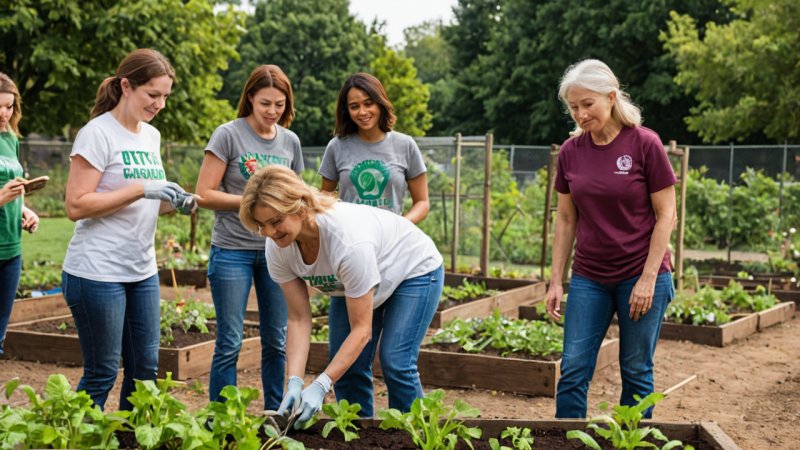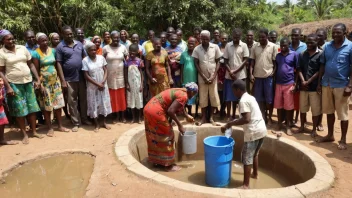Grassroots organizations play a crucial role in addressing humanitarian issues at the community level. They are often the first responders in crises, working tirelessly to provide immediate aid and long-term solutions. Supporting these organizations not only empowers local communities but also fosters sustainable development and social justice. Here are five effective ways you can support grassroots organizations in their humanitarian work.
1. Volunteer Your Time and Skills
One of the most impactful ways to support grassroots organizations is by volunteering. Your skills, whether in healthcare, education, or logistics, can be invaluable. Many organizations rely on volunteers for:
- Direct assistance: Helping distribute food, clothing, or medical supplies.
- Administrative support: Assisting with paperwork, outreach, and event planning.
- Capacity building: Providing training in areas such as financial literacy or health education.
Check local organizations’ websites or social media pages to find volunteer opportunities that align with your skills and interests.
2. Spread Awareness Through Social Media
In today’s digital age, social media is a powerful tool for spreading awareness. By sharing information about grassroots organizations and their work, you can help amplify their message. Consider the following:
- Sharing posts: Regularly share updates, success stories, and calls to action from organizations you support.
- Creating content: Write blog posts or create videos highlighting their initiatives and the challenges they address.
- Engaging your network: Encourage friends and family to follow these organizations and participate in discussions about their work.
Your online presence can significantly increase visibility for grassroots efforts and mobilize others to join the cause.
3. Educate Yourself and Others About Global Issues
Understanding the challenges faced by communities around the world is essential to effectively support grassroots organizations. Take the time to educate yourself on various humanitarian issues, including:
- Poverty and inequality: Learn about the systemic causes of poverty and how grassroots organizations address these issues.
- Health disparities: Understand the healthcare challenges faced by marginalized communities and the role of local organizations in providing care.
- Environmental justice: Explore how environmental issues disproportionately affect vulnerable populations and the grassroots movements dedicated to fighting for their rights.
Share your knowledge with others through discussions, workshops, or community forums to foster a more informed and engaged community.
4. Advocate for Policy Change
Grassroots organizations often face challenges that require systemic change. You can support their work by advocating for policies that align with their missions. Here are some ways to get involved:
- Contact your representatives: Write letters or make calls to advocate for policies that support humanitarian efforts, such as increased funding for aid programs.
- Participate in campaigns: Join campaigns led by grassroots organizations that aim to influence policy and raise awareness on critical issues.
- Educate others: Organize or participate in community events focused on advocacy to mobilize support for policy changes.
Your voice can make a difference in shaping the policies that affect the communities grassroots organizations serve.
5. Foster Partnerships and Collaborations
Building partnerships with local businesses, educational institutions, and other organizations can strengthen the efforts of grassroots organizations. Consider these approaches:
- Collaborate on projects: Work with local entities to create programs that address specific community needs.
- Share resources: Help grassroots organizations access tools, funding, or expertise that can enhance their work.
- Encourage internships: Facilitate opportunities for students to gain experience working with grassroots organizations, fostering a new generation of advocates.
Strong partnerships can amplify the impact of grassroots organizations and create a network of support within the community.
In conclusion, supporting grassroots organizations is vital for fostering humanitarian aid and social justice. By volunteering your time, spreading awareness, educating yourself and others, advocating for policy change, and fostering collaborations, you can play a meaningful role in these organizations' efforts. Every small action contributes to a larger movement towards positive change, empowering communities to thrive and overcome challenges.






